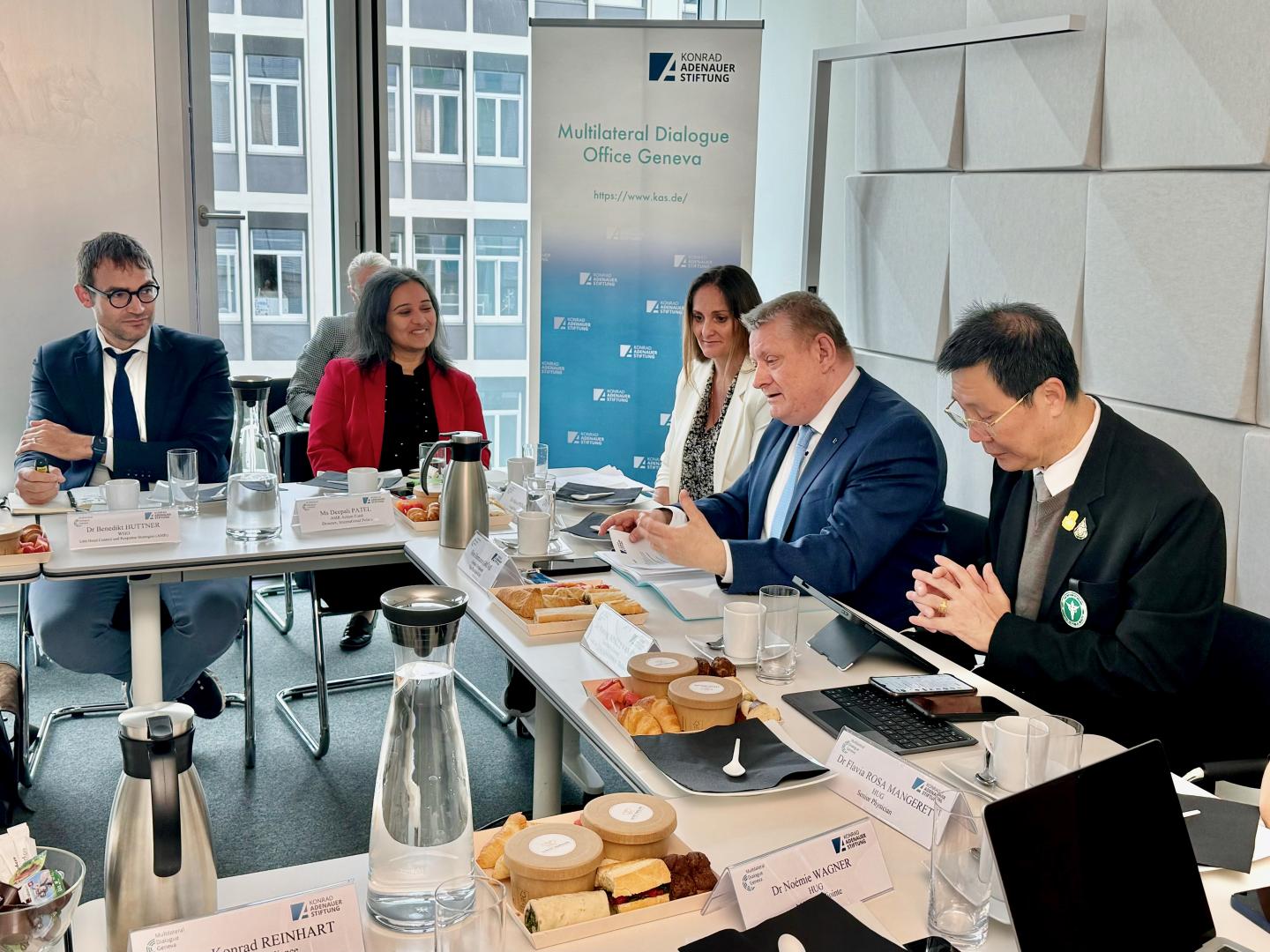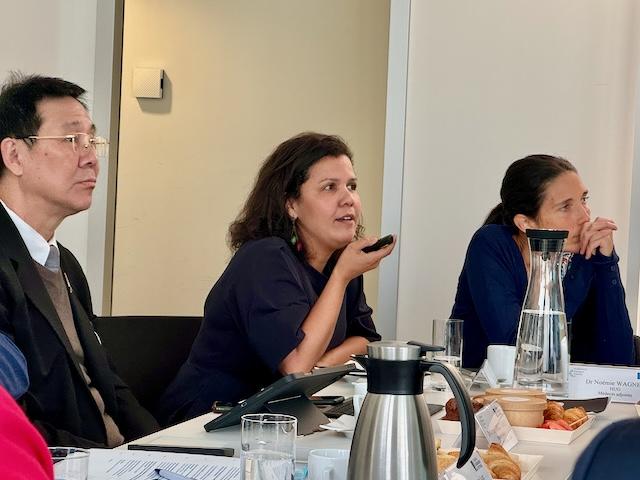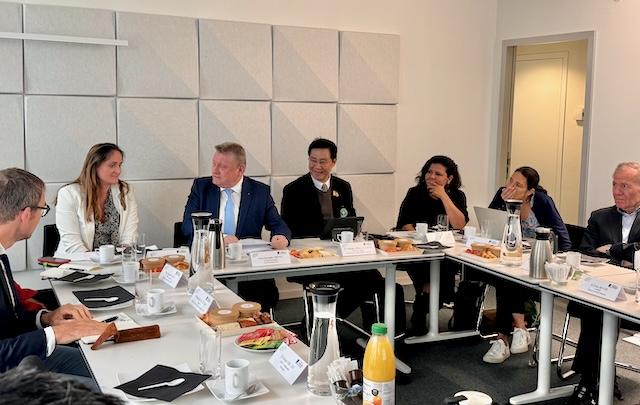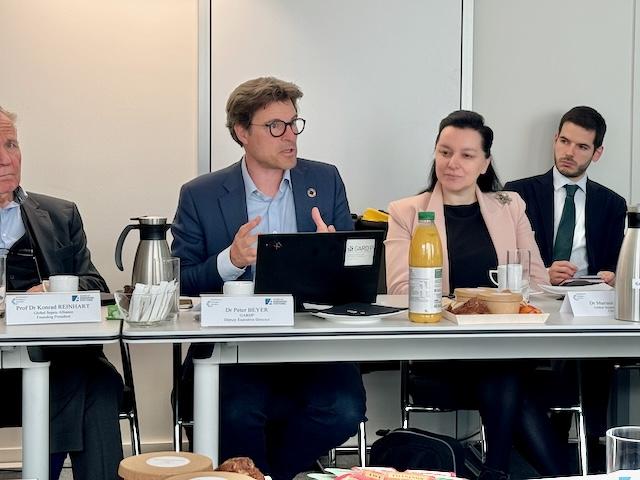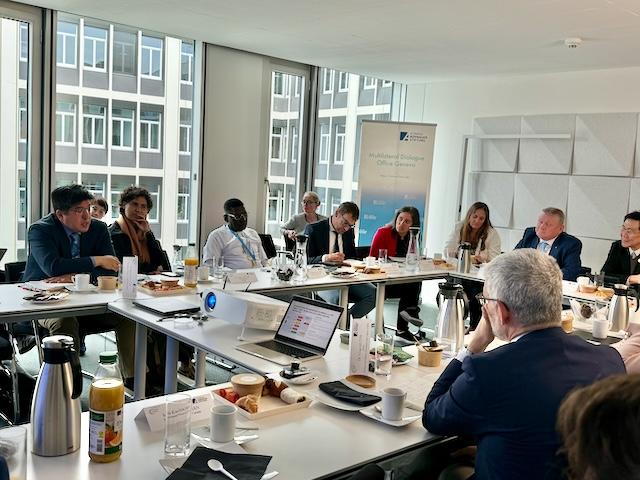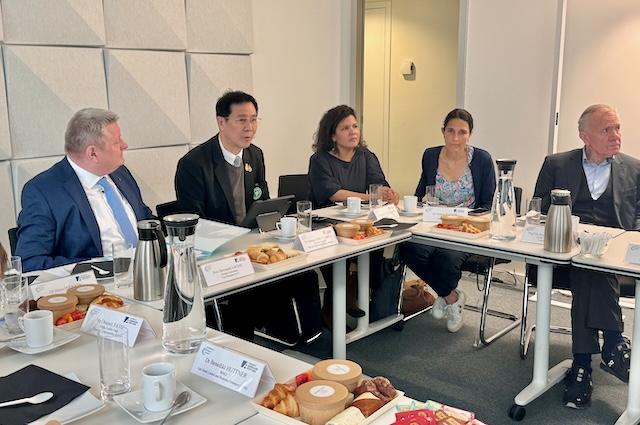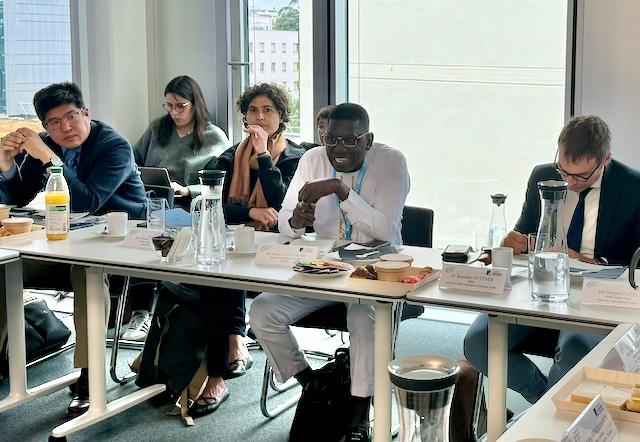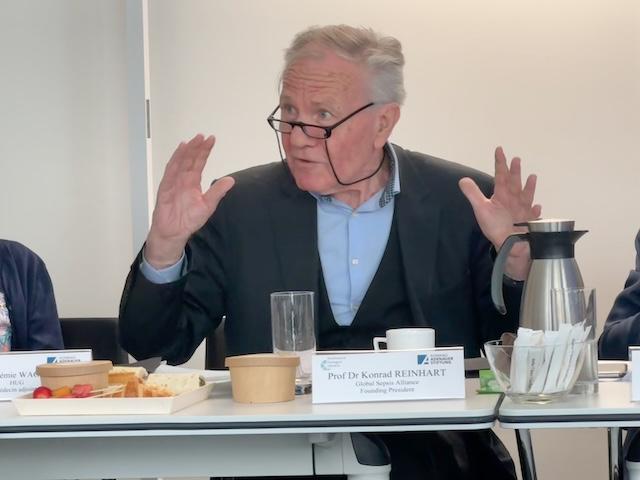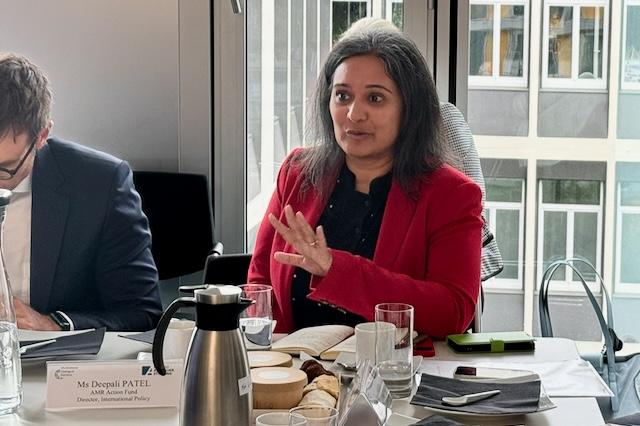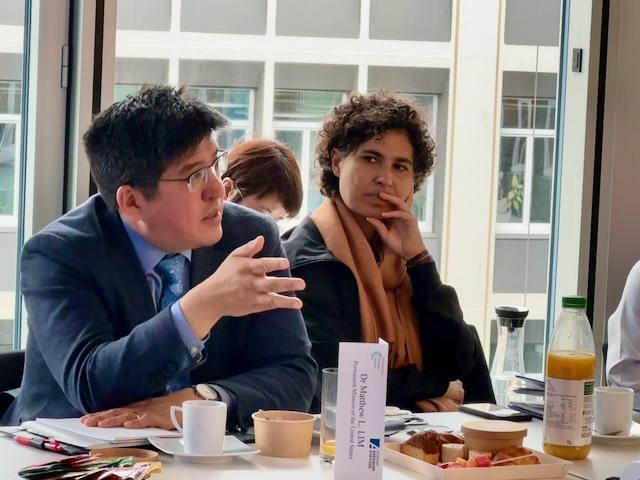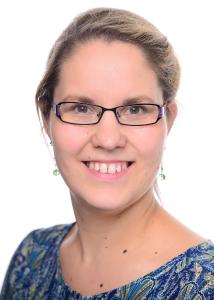Sepsis is one of the leading causes of death worldwide – one in five deaths is due to sepsis – and antimicrobial resistance (AMR) threatens the effectiveness of life-saving treatments, accounting for 1.3 million deaths (2019 data). The breakfast discussion of the Konrad-Adenauer-Stiftung's Multilateral Dialogue on Antimicrobial Resistance (AMR) and Sepsis in Geneva brought together leading experts on the sidelines of the 77th World Health Assembly to discuss global challenges and solutions. The Vice Chairman of the Konrad Adenauer Foundation, Hon. Hermann Gröhe, welcomed the speakers and guests with a clear call to advocate for strong, actionable results and to ensure that the joint efforts lead to sustainable solutions for AMR and sepsis. The high-level meeting on AMR at the UN General Assembly in September 2024 offers an excellent opportunity to draw attention to the global threat of AMR and sepsis. The complex and often multisectoral challenges should be addressed holistically with adequate funding for research and development, but also diagnostics, improved access, and responsible use of therapeutics.
The Secretary-General of the Thai Food and Drug Administration, Dr. Narong Aphilkulvanich, highlighted the common challenges we face in the fight against AMR and sepsis. Good medical care is crucial to effectively combat both. To this end, targeted investments should be made in the health system, with a special focus on health workers and their important role. Responsible use of antibiotics is central to avoiding resistance. Thailand supports this holistic view of antimicrobial resistance and was the driving force behind the recent resolution on AMR adopted by the World Health Assembly.
The representative of the Maltese Ministry of Health and Active Ageing, Dr. Maya Podesta, underlined the growing importance of AMR and the need for international cooperation. Dr. Podesta emphasized the importance of a multisectoral approach to achieve visible effects. Malta's National Action Plan had encountered challenges precisely in this area. Malta, together with Barbados, is co-chairing the high-level meeting of the UN General Assembly in September. On May 20, 2024, the zero-draft of the declaration to be adopted for this meeting had been sent. It covers six areas: governance, financing at national and international level, equitable access to diagnostics and medicines, a coordinated multisectoral response, research and development, innovation and manufacturing, and surveillance and monitoring. The zero-draft proposes to convene the next high-level meeting on AMR in five years.
Dr Benedikt Huttner, Head of Unit for Control and Response Strategies at the WHO's Antimicrobial Resistance division, emphasized the key role of prevention in the fight against AMR and sepsis. Access to specific diagnostics and treatments must be improved, and comprehensive stewardship activities are needed. However, most studies on sepsis have been conducted in high-income countries to identify and disseminate best practices. Both the inappropriate use of antibiotics and the lack of access to important reserve antibiotics are widespread. In his view, four solutions are therefore important: improved infection prevention and control, improved access to quality-assured important antibiotics and better diagnostic tests, programs for the responsible use of therapeutics (stewardship) and closing the most important gaps in the evidence through increased research. This could prevent hundreds of thousands of AMR-associated deaths every year.
One contribution to closing this research gap is a study on neonatal sepsis in sub-Saharan Africa (NESSA), presented by Dr Flavia Rosa Mangeret and Dr Noemi Wagner from the Geneva University Hospital (HUG). Sepsis is a particularly common cause of death in newborns in low- and middle-income countries (LMIC). The NESSA study focused on how clinicians in sub-Saharan Africa treat sepsis and infections in newborns. Particularly critical is the fact that many laboratories are not able to measure blood cultures and inflammatory markers, and that the right drugs are often lacking. Programs against the overuse of antibiotics are rare, and there are only a few large studies. Exposure to antibiotics is high, and at the same time, doctors lack specific information from the laboratories. An in-depth study in Burkina Faso showed the great importance of diagnostic tools and the availability of the right antibiotics, because at the same time as this deficiency, blood cultures were able to show a high prevalence of resistant pathogens. The challenges relate to the lack of a definition of neonatal sepsis, but also to the limited access to diagnostics and preventive measures.
GARDP's Deputy Executive Director, Dr Peter Beyer, underlined these findings with a large observational study in South Africa of 3,000 babies suffering from neonatal sepsis. The results showed a wide range of bacteria that are often resistant to first-line treatments. Over 200 different treatment approaches were tested. The pharmaceutical industry invests little in this area due to the high risk, which is why GARDP is working to combine existing antibiotics and develop regionally adapted treatments. He joined his previous speakers on the importance of infection prevention and control measures as well as laboratory capacities.
The discussions of the participants emphasized the need to always have the right tools available and to use them properly. The acute problem of AMR must be addressed now, as it has not been prioritized so far. UN studies show that although child mortality has been reduced overall, neonatal mortality remains high and is also linked to maternal mortality. It was emphasized that 80 percent of infections come from the community and that health education is important not only for professionals but also for the general public. Self-medication, especially in agriculture, has been identified as a major problem that requires coordinated efforts. Therefore, it was concluded that a multisectoral approach is necessary to effectively address the challenges of AMR and sepsis. International cooperation and targeted resource allocation play a central role in this.
The discussants included Deepali Patel from the AMR Action Fund and Professor Dr Konrad Reinhart from the Global Sepsis Alliance. They stressed the importance of a comprehensive approach and the need to bring together different ministries and sectors to ensure a coordinated response to AMR and sepsis.
Topics
Doubling Down, not Backing Down
Bundestag election 2025: France hopes for policy change in Germany
The Value of Global Health
No clear winner in the parliamentary elections in Kosovo: Forming a government will be complicated
Canada faces the threat of a trade war with the U.S. in this election year!



